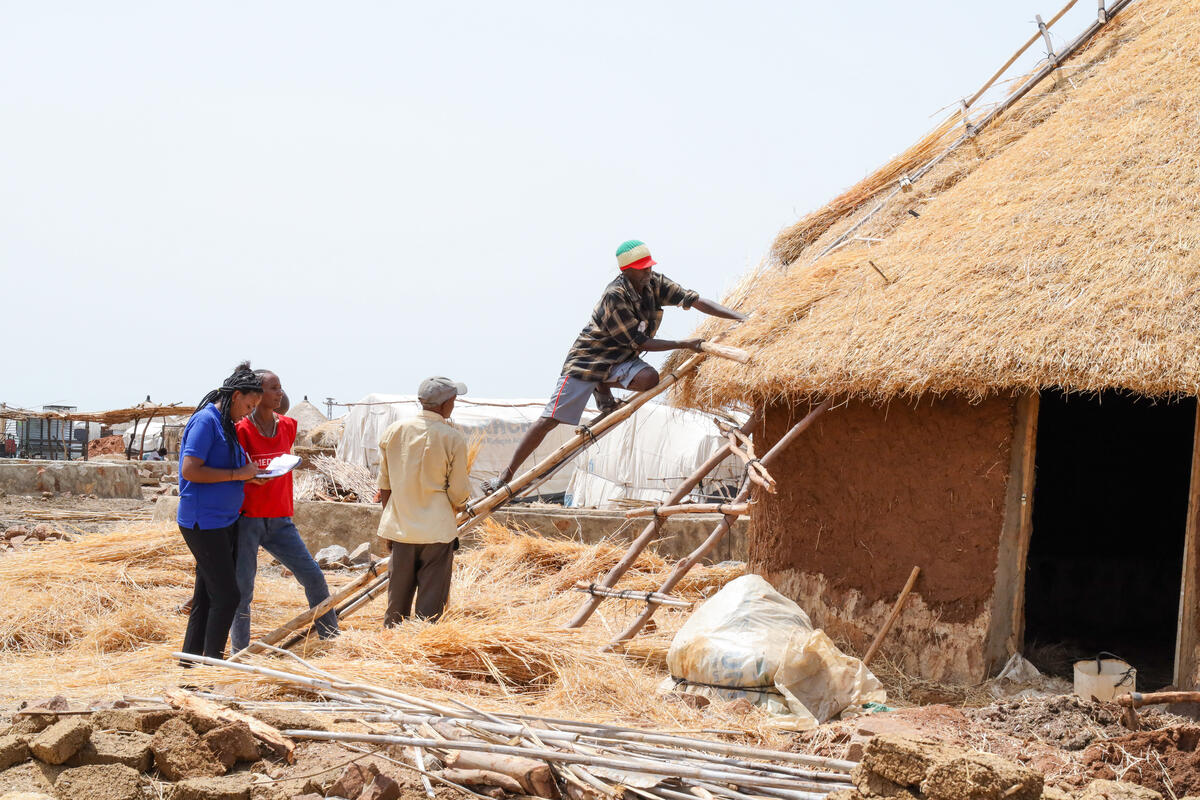Eritrea: 'only one third have adequate shelter'
Eritrea: 'only one third have adequate shelter'
Only one third of Eritrea's displaced population have adequate shelter, the Eritrean government estimates. A UNHCR plane carrying plastic tarpaulins is scheduled to arrive in Asmara tomorrow (Wednesday, 5 July) and we've already sent additional supplies of plastic sheeting and tents from stockpiles in Europe. UNHCR staff have been instructing carpenters on making the most efficient use of wood that we have airlifted from Copenhagen to frame 500 shelters, and we are also buying additional timber from local Eritrean importers so that the IDPs can construct thousands of additional shelters.
Heavy rains have started across Eritrea, leaving some normally parched regions awash, and soaking the internally displaced people (IDPs) who lack sufficient shelter. A UNHCR team last week visited people at the Zula IDP site near Karibosa, where people are living in caves and under ledges, often exposed to the elements. The cold and wet will exacerbate existing problems in some of the high-altitude camps.
With the inhabitants of Eritrea's rich western lowlands driven into neighbouring Sudan or displaced within their own country, it's unlikely that the nation will harvest the 60 percent of its cereals this year that it normally gets from the western lowlands. This is likely to make Eritrea largely dependent on external aid. The government has announced that it's throwing an additional 400 trucks into the delivery of relief items, in addition to the 51 trucks and 20 trailers provided by UNHCR which to date have been moving the bulk of relief materials. These additional trucks provided by the government should help ensure that Eritrea's IDPs have additional food, shelter materials and other items, but more supplies are urgently needed .
The situation in Eritrea is a race against time in every way, as the rains and cool season, the lack of adequate shelter and aid in many areas, and most importantly, the water and sanitation situation in the camps could rapidly worsen the health situation among the internally displaced. A host of aid agencies are now working in Eritrea, where UNHCR's actions are closely co-ordinated with the government, UNDP, WFP, UNICEF and our other partner agencies such as Oxfam, MSF, etc.
In a positive sign, UNHCR received official permission on Saturday to establish an office at Akurdet in the west of the country. The office was set up in Akurdet yesterday (on Monday). UNHCR's mobile emergency teams are now permanently based in the field and working out of Akurdet to reach up to Tesseney and other points along the border with Sudan.









